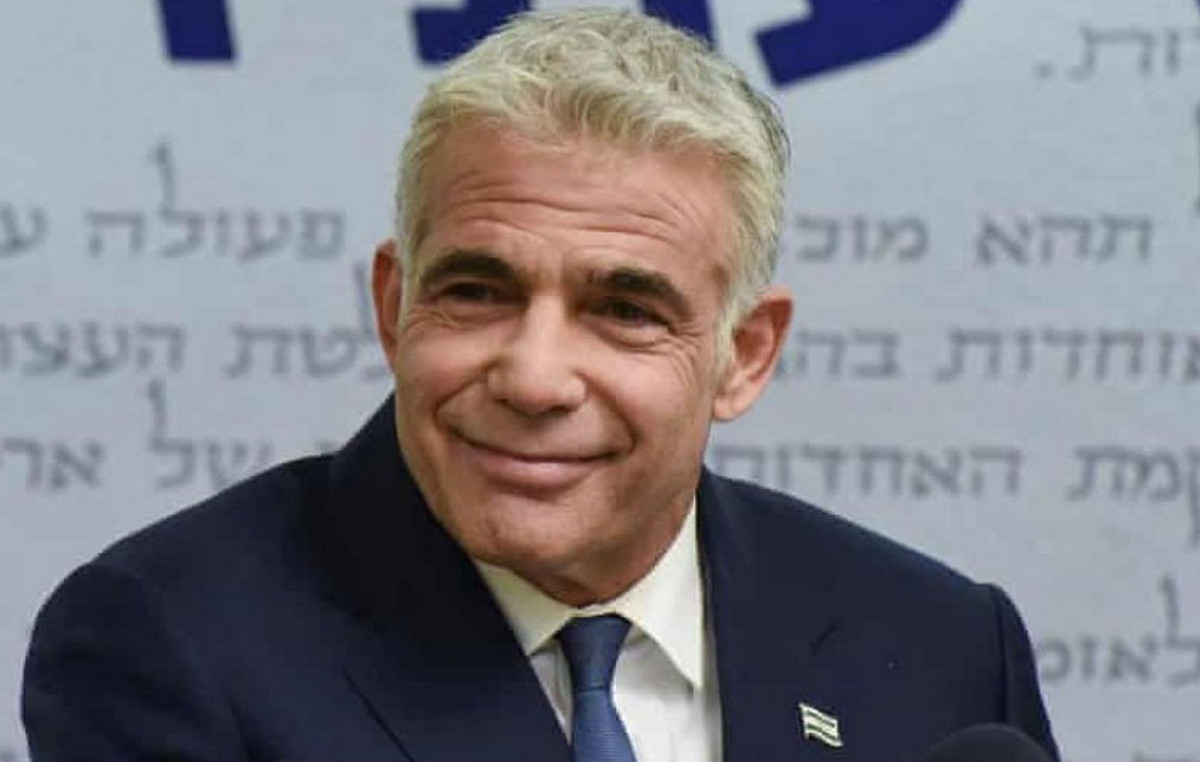Michael Stumo's life changed forever on March 10, 2019. His daughter, Samya Rose Stumo, died that day when the Boeing 737 Max 8 she was in plunged into the ground outside Addis Ababa, Ethiopia, six minutes after the plane takes off. She was 24 years old.
“Part of our life is dead. Part of our future is dead,” he told CNN as the fifth anniversary of the accident approached.
“She had everything. It was brilliant. She was the student who published the most articles at the Copenhagen School of Public Health. She taught herself to read before she was four years old. She went to college at 14. She was beautiful and charismatic. Her smile lit up a room. She was very attentive. She would have been a star in the world of global health.”
Samya Rose was flying from Ethiopia to Kenya as part of her new job at a health systems development organization. Although the same model of jet had crashed shortly after taking off from Indonesia less than six months earlier, aviation authorities around the world allowed the 737 Max to continue flying with passengers.
Michael Stumo said he never thought much about the plane or his daughter's flight plans.
“We didn’t think about air travel. We didn’t pay attention to the airline, the aircraft model,” he said.
“Now we pay a lot of attention to planes. We would never fly in a Max,” she reports.
The March 10 anniversary is difficult for the families of the 157 people aboard the Ethiopian jet because concerns about Boeing's safety and quality have been much in the news over the past two months.
Third incident
This year, on January 5, a part of a 737 Max 9 flown by Alaska Airlines exploded, leaving a gaping hole in the side of the plane. Fortunately, the plane managed to land minutes later without fatalities or serious injuries.
A preliminary investigation by the National Transportation Safety Board found that the plane had left a Boeing factory and was delivered to Alaska Air less than three months ago without the four screws needed to hold the door plug in place.
Since the incident, Boeing has announced measures to improve safety and quality, including an all-employee safety meeting the week following the explosion and shutting down production at the Max factory for a day at the end of the month to further discuss how to improve security.
But the Federal Aviation Administration (FAA) is not satisfied. The regulator gave Boeing 90 days to come up with a plan to address the safety flaws.
Some of the families of victims of the Ethiopia crash welcomed the intense regulatory scrutiny over Boeing following the port plug's rupture in January.
“It’s not that we’re happy about this happening. But it's a mixed blessing. Something bad was going to happen, but in this case, no one died,” Stumo said.
He states that “with our accident, the focus was on design. There was no chaos in production. The production issues really came to a head this time.”
Zipporah Kuria, 28, lost her 55-year-old father, Joseph, on the same flight, and said her entire life was shattered by the accident.
“I think my initial impression was that it was an unfortunate accident,” she recalled about what happened in 2019.
“So when I learned later that day that this wasn't the first of these accidents and that they were both relatively new planes, my mind went to 'something's not right'.”
Like Stumo, she became involved in trying to hold Boeing accountable for its failures, spending hours a week focusing on the issue, contacting aviation regulators, speaking publicly, and trying to draw more public attention to the problems of production and safety of the company.
“It robbed me of time, opportunities, peace of mind and most importantly, my father,” she said last week.
“I haven't had the ability to fall in love and build a life with someone else because that has been the center of my life. Just when I think, 'I'm going to focus on other parts of my life now,' a door falls off the plane and we're back in the Boeing circus.”
But like Stumo, Kruia says she's pleased that the Alaska Air incident has brought attention to the fact that Boeing's problems weren't fixed when the 737 Max planes returned to service after a 20-month grounding.
The company's production problems went beyond the design flaw that led to the accidents.
For five years, the company faced several potential quality and safety issues with its aircraft, which led to long-term grounding of some jets and halted deliveries of others.
But the problems, including de-icing equipment that could fail on the 737 and 787 Dreamliner planes, problems with the 777's engine and repeated concerns about quality control of the 787's fuselage, have not drawn much public attention.
The frightening door plug incident, however, has drawn attention to years of safety concerns at the company.
“When this happened, and everyone on the plane was OK, there was relief,” Kuria said.
She adds that “this is the smoking gun that we have been waiting for the world to see, for the world to wake up and for Boeing to be exposed.”
Pressure for things to continue as usual and a delayed process
Victims' families and the lawyer who represented many of them are particularly angry that the Max continued to fly after the first crash demonstrated a design flaw, a problem with a single sensor that would push the jet's nose down if detect an imminent collapse.
Boeing continued to insist that the plane was safe, not only after the first crash but also for days after the second.
Only later did Boeing admit the design flaw as part of investigations and lawsuits that revealed internal discussions about problems with the design shortly after the first crash.
“Within days of the first accident, Boeing knew there was a design defect,” Robert Clifford, one of the plaintiff’s attorneys in the case, told CNN.
He states that “instead of alerting all operators to this defect, they believed they could get ahead of it. That is not what happened. They gambled with people’s lives and people lost.”
In 2021, Boeing admitted liability in both accidents, agreeing to pay compensatory damages, which allowed the company to avoid the possibility of having to pay much more in punitive damages.
Boeing also agreed to a controversial deferred prosecution agreement with the U.S. Department of Justice on charges that it defrauded the FAA in obtaining the Max's original certification.
Boeing agreed to pay $2.5 billion as part of the settlement — but most of that money was paid to airlines as compensation for the 20-month jet grounding. These were payments the company had already agreed to make.
Since the Alaska Air incident, the Justice Department has begun looking into whether deficiencies found after the door plug burst violate the deferred prosecution agreement, according to a person familiar with the investigation.
The results of the investigation could subject Boeing to criminal liability depending on its outcome.
The airline acknowledged in a January regulatory filing that the Justice Department was checking whether it had complied with the terms of the deferred prosecution agreement, but told CNN who had no further comment on the Justice Department's latest investigation.
But beyond Boeing's many probes, audits and investigations, many family members remain angry that the jet was allowed to fly again after the company made changes to the system following a 20-month grounding.
They say the Alaska Air incident demonstrates that the problems at Boeing are much deeper than the fixed design problem. Some say they extend to production issues and serious problems in Boeing's organizational structure. The company declined to comment.
Boeing CEO Dave Calhoun acknowledged at a company-wide safety meeting that the company made a mistake with the port plug explosion, and the company committed to improving safety. Last month, Boeing ousted Ed Clark, head of its 737 Max passenger jet program.
“A swampy cesspool”
Since the Alaska Air incident, the Federal Aviation Administration has issued a report that was more than a year in the making, harshly criticizing Boeing's safety culture.
Despite statements from Boeing management about a renewed commitment to safety, the FAA found that “safety-related messages or behaviors are not being implemented across the entire Boeing population.”
The panel, which conducted more than 250 interviews and reviewed more than 4,000 pages of documents, found that among Boeing employees there was a “hesitation to report safety concerns for fear of retaliation” due to management conflicts of interest.
The report also states that confusion about safety programs “may discourage employees from raising safety concerns.”
A separate follow-up document from the FAA focused on the Alaska Air incident and found several problems with the company's production practices.
The agency gave Boeing 90 days to come up with a plan to fix its quality problems.
Boeing insists it is making a renewed commitment to safety and correcting production problems, and that the company is working to satisfy the concerns expressed by the FAA.
Asked to comment on the fifth anniversary of the Ethiopian crash, the company responded: “We will never forget the lives lost on Ethiopian Airlines Flight 302 and Lion Air Flight 610 and their loved ones. The memory of these people and the hard lessons we learned from these accidents drive us every day to maintain our responsibility to everyone who depends on the safety and quality of our products.”
But the victims' families are not satisfied with that statement or other apologies issued by Boeing and its executives over the past five years.
They say they will not stop pushing for changes at Boeing until the company's top management is replaced.”It's Boeing management's fault. Until David Calhoun and director of 'security' Mike Delaney leave, this will not change,” Stumo said.
“It’s a swampy cesspool,” he added.
Stumo and some other victims' family members met with former Boeing CEO Dennis Muilenburg in 2019 after he testified about the Washington crashes.
Asked if he would like to reunite with Calhoun, Stumo took a long pause before responding: “I’m not sure.”
But Kuria said he would like to meet with Calhoun and other Boeing executives.
“Just to know how these people sleep at night. How you kiss your children and hug your wife, knowing that there is a group of families who will never be able to do that because of the decisions made,” she said.
Source: CNN Brasil
Bruce Belcher is a seasoned author with over 5 years of experience in world news. He writes for online news websites and provides in-depth analysis on the world stock market. Bruce is known for his insightful perspectives and commitment to keeping the public informed.






